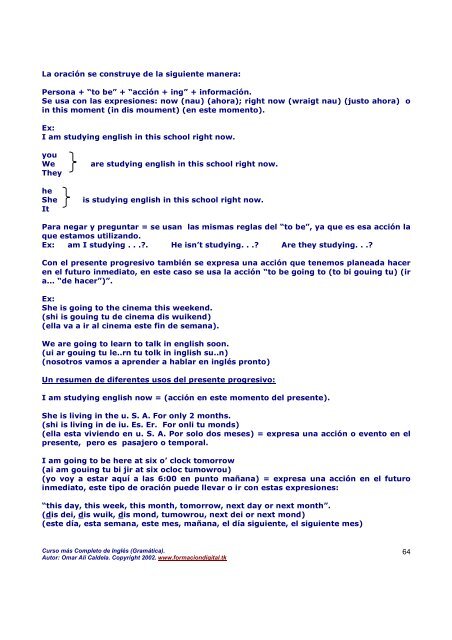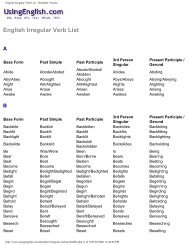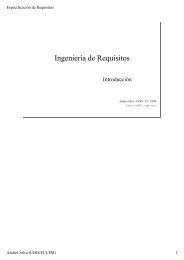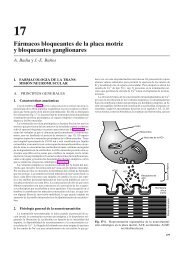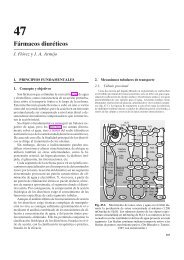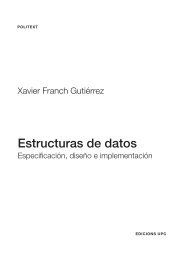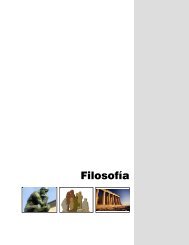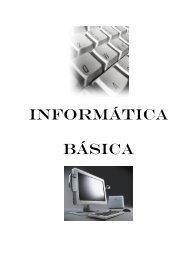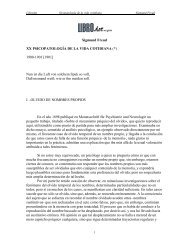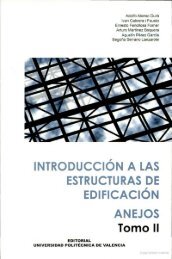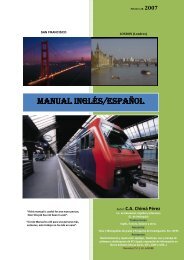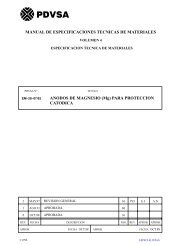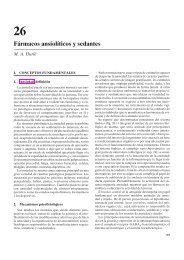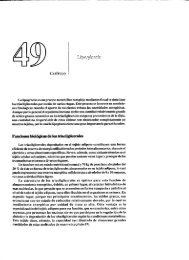EL CURSO MAS COMPLETO DE INGLES .pdf - sisman
EL CURSO MAS COMPLETO DE INGLES .pdf - sisman
EL CURSO MAS COMPLETO DE INGLES .pdf - sisman
You also want an ePaper? Increase the reach of your titles
YUMPU automatically turns print PDFs into web optimized ePapers that Google loves.
La oración se construye de la siguiente manera:<br />
Persona + “to be” + “acción + ing” + información.<br />
Se usa con las expresiones: now (nau) (ahora); right now (wraigt nau) (justo ahora) o<br />
in this moment (in dis moument) (en este momento).<br />
Ex:<br />
I am studying english in this school right now.<br />
you<br />
We are studying english in this school right now.<br />
They<br />
he<br />
She is studying english in this school right now.<br />
It<br />
Para negar y preguntar = se usan las mismas reglas del “to be”, ya que es esa acción la<br />
que estamos utilizando.<br />
Ex: am I studying . . .?. He isn’t studying. . .? Are they studying. . .?<br />
Con el presente progresivo también se expresa una acción que tenemos planeada hacer<br />
en el futuro inmediato, en este caso se usa la acción “to be going to (to bi gouing tu) (ir<br />
a... “de hacer”)”.<br />
Ex:<br />
She is going to the cinema this weekend.<br />
(shi is gouing tu de cinema dis wuikend)<br />
(ella va a ir al cinema este fin de semana).<br />
We are going to learn to talk in english soon.<br />
(ui ar gouing tu le..rn tu tolk in inglish su..n)<br />
(nosotros vamos a aprender a hablar en inglés pronto)<br />
Un resumen de diferentes usos del presente progresivo:<br />
I am studying english now = (acción en este momento del presente).<br />
She is living in the u. S. A. For only 2 months.<br />
(shi is living in de iu. Es. Er. For onli tu monds)<br />
(ella esta viviendo en u. S. A. Por solo dos meses) = expresa una acción o evento en el<br />
presente, pero es pasajero o temporal.<br />
I am going to be here at six o’ clock tomorrow<br />
(ai am gouing tu bi jir at six ocloc tumowrou)<br />
(yo voy a estar aquí a las 6:00 en punto mañana) = expresa una acción en el futuro<br />
inmediato, este tipo de oración puede llevar o ir con estas expresiones:<br />
“this day, this week, this month, tomorrow, next day or next month”.<br />
(dis dei, dis wuik, dis mond, tumowrou, next dei or next mond)<br />
(este día, esta semana, este mes, mañana, el día siguiente, el siguiente mes)<br />
Curso más Completo de Inglés (Gramática).<br />
Autor: Omar Ali Caldela. Copyright 2002. www.formaciondigital.tk<br />
64


